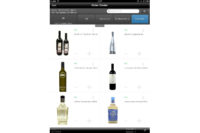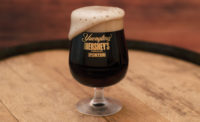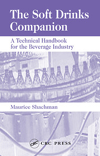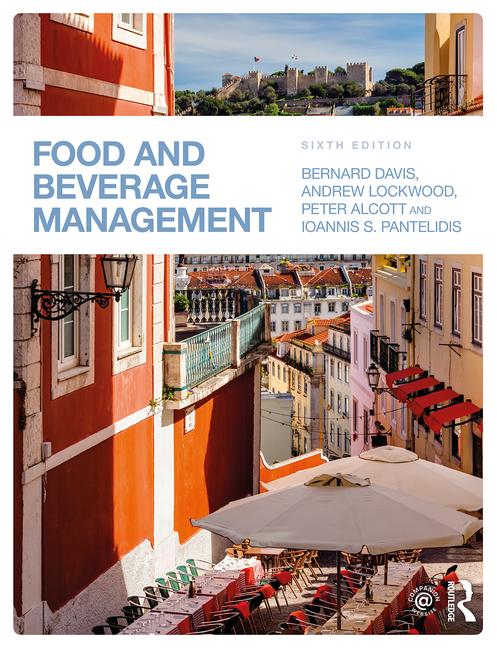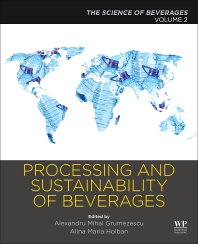Image recognition, machine learning drive efficiency, accuracy for beverage brands
Steps taken with artificial intelligence will streamline operations

Artificial intelligence (AI) is improving business outcomes and creating competitive advantages for leading beverage brands. Although the technology itself is complex, its proliferation is easy to understand: operational efficiencies, market and product data collection simplification, supply chain optimization, increased transparency and sales activity enablement.
By 2024, AI in the food and beverage market is expected to exceed a compound annual growth rate (CAGR) of 65.3 percent, with image recognition (IR) paving the way. By 2025, the IR market will reach
$622 million globally.1 “The greatest impact this technology will have on the beverage industry is its power to change human behavior for the better,” says Laura Sellers, executive vice president of product and engineering at GoSpotCheck. “With IR, people will have more opportunities to take action that truly matters.”
In a recent survey by FoodDive, 49 percent of food and beverage manufacturers reported that automating mundane tasks is a top business challenge, while 84 percent said their current data infrastructure is unable to support their data intelligence needs.2 Powered by machine learning (ML), top IR solutions automate tasks, transform data into real-time insights, and enable suppliers and distributors to analyze diverse display types from the convenience of mobile. That data is analyzed, tagged, segmented, and filtered through a proprietary ML model in the cloud with results returned to the device in minutes.
Increase efficiency + business value: IR empowers users to “do more with less” through technology that quickly identifies and segments products, eliminates hand counting, and produces results on-location. Data captured is used to define the precise action needed to drive incremental sales and enables leaders to make decisions based on unbiased data analysis.
Improve set accuracy: Nearly half of today’s beverage companies face challenges around task automation and efficiency. In response, automated asset detection and segmentation through IR ensures fewer manual mistakes. Sales reps also are able to receive results in the field in real time, proving nimble in-market adjustments.
Improve trade marketing performance: Through IR’s ability to accurately capture data and recognize errors, beverage brands can verify compliance for trade negotiations, and drive accountability on and off-premise.
Optimize labor: Making data collection more efficient allows distributors and suppliers to optimize labor and reinvest resources into higher-leverage selling activities.
Once a beverage brand defines an IR strategy, testing platforms and proving ROI is critical before scaling them. Consider the following criteria when comparing IR technology partners:
Intuitive end user interface: Explore solutions designed with your mobile workforce in mind. Efficient, intuitive mobile tools increase employee productivity and engagement, provide context, and reduce attrition.
Integrated solution for IR, task management & execution: Without task execution or performance tracking, many solutions only have IR capabilities. Beverage companies need to arm reps with contextual data to make the right call and to send signals back to leadership, requiring in-app task execution capabilities. Turnkey platforms, such as GoSpotCheck, enable brands to capture IR data, measure results, provide context and prioritization, and take action in one app.
Diverse scene type analysis: Ensure the IR platform can analyze multiple scene types with accuracy and speed. Understand the product roadmap and successful milestones reached for each scene type.
Robust data pipeline: The most cost-intensive component of successful IR is the data pipeline. Machine learning AI produces massive amounts of data, so effective IR solutions must quickly and accurately generate, process and analyze vast data sets, and make data fast and usable.
Speed & accuracy: The strength of the model must surpass that of human accuracy, which is about 96 percent3, and delivers results to the device in less than two minutes. “Adopters should start by striving for something better than human accuracy,” says Goran Rauker, computer vision and machine learning specialist at GoSpotCheck. “This provides a benchmark for measuring results and making improvements.”
IR technology will transform operations and field sales performance in the beverage industry. But, for category leaders to see success in adoption, they should establish clear goals, test and prove ROI, and choose their technology partners wisely. Beverage brands that leverage IR will reap the benefits in the long-term and create a more productive workforce — and a healthier bottom line.
- https://www.mordorintelligence.com/industry-reports/ai-image-recognition-market
- https://www.fooddive.com/news/ai-in-food-and-beverage-3-money-saving-industrial-benefits-for-2020/571604/
- https://royalsociety.org/~/media/policy/projects/machine-learning/publications/machine-learning-report.pdf
Looking for a reprint of this article?
From high-res PDFs to custom plaques, order your copy today!




